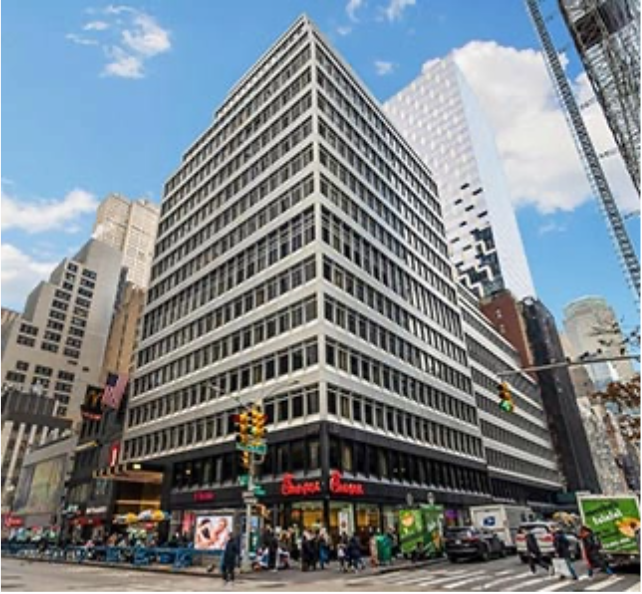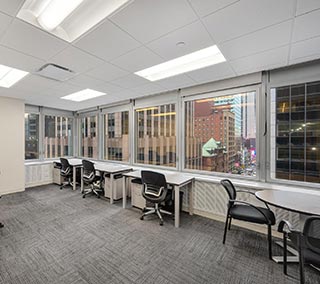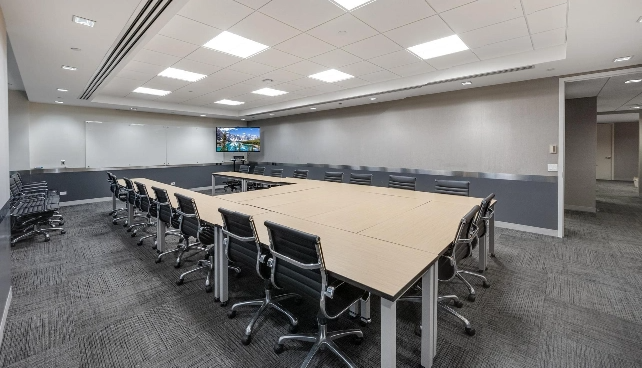Did you know that nearly 30 million Americans now work from home at least one day a week? That number is expected to steadily rise, with Odesk, an online marketing for hiring remote workers, predicting that by 2020, 1 in 3 people will actually be hired to work online from anywhere they want! With these stats, it’s clear to see that flexible work spaces are becoming a staple among the nation’s most successful companies.
A Guide to Flexible Work Space Terminology
The flexible workspace industry has a wide range of terms and definitions. Some of the most common terms tossed out among those interested in a flexible workspace are:
-
Collaborative Workspace — Collaborative workspaces are different than a traditional office layout in that they generally refer to a space that multiple companies or individuals share while maintaining their separate endeavors.
-
Co-Working — A co-working space is a type of collaborative workspace and is often available on a pay-as-you-go basis. Known by their community-style approach, co-working spaces encourage members to interact and support one another. Most co-working spaces provide Wi-Fi, communal lounge areas, desks, furniture, etc. This type of set-up is ideal for independent or work-from-home professionals, start-ups looking for a steady workspace, those needing a break from the isolation of working from home, and those seeking inspiration or support from like-minded entrepreneurs.
-
Hot-Desk — Hot-desks are spaces typically located in a shared environment that are available by the hour or day. Hot-desking is typically a drop-in environment that does not have the communal vibe associated with co-working. If you’re constantly on the move but need the occasional place to land, hot-desking is a great idea.
-
Touchdown Space — A touchdown space is any workspace, whether shared or private, that is used on a drop-in basis. Typically available by the hour or day, touchdown spaces can be located in a coworking space, a business lounge, a commercial building. You may also hear them referred to as “third place” locations.
Reasons A Flexible WorkSpace is Smart for Talent Acquisition
Organizations seeking to acquire the best talent are learning that the days of beige carpet and grey cubicles are quickly becoming extinct. The mundane walls, carpet, and cubicle scene breeds mediocrity, dampens creativity, and slows productivity — none of which a thriving business is after.
In order to acquire the best talent, a company needs to be willing to work with that talent to customize their jobs, making people feel valued and improving their performance. Part of this customization includes working with employees to be flexible and collaborative with their hours and location. The benefits of collaborating with employees for their workplace flexibility include:
-
Buy-in — Working with employees on their flexible workspace is an easy way to treat them with trust and respect. Now, instead of working for you, they are working with you because they know that the opportunity to work from the location of their choosing places a serious commitment to the organization in their hands. This builds a great amount of buy-in and a positive workplace culture.
-
Higher Morale — Plenty of research studies show that organizations that allow employees to have a flexible workspace have less employee turnover, fewer employee absences, and a higher level of engagement and productivity. Happy employees breed better results.
-
Broader Talent Pool — If an organization’s talent is no longer limited to who can be in the office, the pool of talent broadens. No longer is the search limited to who can work in a certain zip code during certain hours of the day — in fact, a flexible workspace allows companies to search the world over for the best talent for their job. By using social networks, intranets, teleconferencing, and more the possibilities are endless.
-
Value Added — An employee with a well-rounded life brings value to any job. By spending less time confined in an office, employees are a better work-life balance, giving them more opportunities to find inspiration, collaboration, and joy in their work and daily lives.
-
Smart Strategy — Telecommuting helps businesses save costs on supplies, real estate, and utilities. It also encourages the best talent in the pool to look at working for the company, as a company that allows flexible workspaces for its employees tend to have more empathetic, energetic, and happier employees.
Must-Haves for Flexible Work Spaces
Not all flexible workspaces are created equally! Going to work at a local coffee shop is considered having a flexible workspace, but the chances of being incredibly productive there are slim to none. Some of the best flexible workspaces out there have these traits in common:
-
Hoteling-style Seating — An article published by the Washington Post in 2013 highlighted office spaces with the millennial generation in mind. One of the key points of that article was the concept of “hoteling,” where employees sign up for a workspace as needed. This allows employees to work in a traditional office for part of the week if necessary while giving them the freedom to work from a flexible location other days. By offering employees a variety of workspace options, companies can better optimize their work environment.
-
Collaboration Technology — For employees to work remotely, the right technology needs to be available. Video-telephony technology lets employees sit down for a meeting together no matter their location and makes collaboration amongst employees a breeze.
-
Flexible Power and Connectivity — While this seems like a given, plenty of flexible workspace options often overlook the importance of having flexible power and connectivity options. The freedom to move around a room without worrying about cords and connectivity allows workers to get their jobs done no matter where they are in the room and doesn’t have them fighting over that one corner outlet in the flexible workspace.
-
Collaborative Work Areas — Collaborative work areas take on a variety of forms, from purposefully positioned chairs to an open conference room, the most important thing is to provide an environment where people can comfortably get together and share ideas and resources.
If you are looking for a private office space in NYC, Corporate Suites would love to help you in your search. We offer inspiring business environments, office suites in NYC, NYC coworking spaces, NYC conference rooms, and everything in between. Whether you’re a business looking for a temporary office solution, or an individual looking for the perfect landing space, Corporate Suites has the solution for you — call us today — (888) 848-6960.
CoWork. Collaborate. Create.
The opportunities are endless! Book a tour today to see if CoWorking is the right choice for you.







